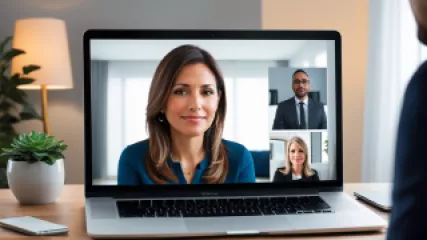Mastering Divorce Counseling: Your Ultimate Guide to Virtual Counselor for Divorce Guidance
Welcome to the ultimate guide to mastering divorce counseling. In this comprehensive article, we will delve into the world of virtual counselor for divorce guidance and provide you with valuable insights and strategies to support individuals going through the challenging process of divorce. With the rise of technology, virtual support for divorce recovery has become increasingly accessible, offering a convenient and effective way to seek guidance and assistance. Whether you are a professional counselor or an individual seeking support, this guide will equip you with the knowledge and tools to navigate the complexities of divorce and provide compassionate care to those in need.
Section 1: Understanding Divorce Counseling
What is Divorce Counseling?
Divorce counseling, also known as divorce therapy or divorce coaching, is a specialized form of counseling that provides emotional support, guidance, and practical advice to individuals and families going through the process of divorce. It aims to help individuals cope with the various challenges and emotions associated with divorce, such as grief, anger, sadness, and uncertainty.
The Importance of Divorce Counseling
Divorce is a significant life transition that can be emotionally and psychologically challenging. The support of a trained professional can make a significant difference in helping individuals navigate the complex emotions and decisions that come with divorce. Divorce counseling offers a safe space for individuals to express their feelings, gain clarity, develop coping strategies, and rebuild their lives.
Benefits of Virtual Divorce Counseling
Virtual divorce counseling refers to counseling sessions conducted through video conferencing platforms, allowing individuals to receive support from the comfort of their own homes. This mode of counseling offers several benefits:
- Convenience: Virtual counseling eliminates the need for travel, making it more accessible for individuals with busy schedules or limited mobility.
- Privacy: Virtual sessions offer a level of privacy and anonymity that some individuals may find more comfortable, especially when discussing sensitive topics.
- Flexibility: Virtual counseling provides flexibility in scheduling sessions, making it easier to find a time that works for both the client and the counselor.
- Access to Specialists: Virtual counseling allows individuals to connect with divorce counselors who may not be available in their local area, expanding their options for support.
Section 2: Finding a Virtual Counselor for Divorce Guidance
Choosing a Virtual Divorce Counselor
When selecting a virtual counselor for divorce guidance, it is essential to consider the following factors:
- Qualifications and Experience: Look for a counselor who specializes in divorce counseling and has relevant experience in helping individuals navigate the challenges of divorce.
- Approach and Philosophy: Consider the counselor's therapeutic approach and ensure it aligns with your personal preferences and goals.
- Compatibility: Building a strong therapeutic relationship is crucial for successful counseling. Find a counselor with whom you feel comfortable and supported.
- Availability and Accessibility: Ensure that the counselor's schedule aligns with your availability and that they offer virtual counseling services.
Researching and Shortlisting Counselors
Begin your search for a virtual divorce counselor by researching online directories, professional associations, and counseling platforms that offer virtual services. Take the time to read counselor profiles, reviews, and testimonials to gain insight into their expertise and approach. Shortlist a few counselors who meet your criteria and seem like a good fit.
Contacting Potential Counselors
Reach out to the shortlisted counselors to schedule an initial consultation or ask any questions you may have. This consultation is an opportunity to discuss their approach, fees, availability, and any specific concerns you want to address. It also provides a chance to assess the counselor's communication style and determine if you feel comfortable working with them.
Making Your Decision
After the initial consultations, take some time to reflect on your discussions with each counselor. Consider their expertise, compatibility, and overall impression. Trust your instincts and choose the counselor who you believe will provide the best support and guidance during your divorce journey.
Section 3: The Virtual Divorce Counseling Process
Initial Assessment
The first step in the virtual divorce counseling process is the initial assessment. During this session, the counselor will gather information about your situation, including the reasons for seeking counseling, the stage of the divorce process, and your emotional well-being. This assessment helps the counselor understand your needs and develop a tailored treatment plan.
Setting Goals
Working collaboratively with your virtual counselor, you will establish goals for the counseling process. These goals can vary depending on your individual needs but may include emotional healing, developing coping strategies, improving communication with your ex-partner, co-parenting effectively, or rebuilding your life after divorce. Clearly defined goals provide a roadmap for the counseling journey.
Exploration and Processing
Throughout the counseling sessions, you will explore and process the various emotions and challenges associated with divorce. The counselor will provide a safe and non-judgmental space for you to express your feelings, gain insight into your thoughts and behaviors, and develop healthier coping mechanisms. Techniques such as cognitive-behavioral therapy, mindfulness, and narrative therapy may be employed to facilitate healing and growth.
Practical Guidance and Support
In addition to emotional support, a virtual divorce counselor can provide practical guidance and support. They may offer advice on legal matters, co-parenting strategies, financial management, and accessing community resources. This comprehensive approach ensures that individuals receive the necessary tools and information to navigate the practical aspects of divorce successfully.
Monitoring Progress and Adjusting the Treatment Plan
As you progress through the counseling process, the virtual counselor will regularly assess your progress and adjust the treatment plan accordingly. Open communication between you and your counselor is crucial in addressing any emerging needs, modifying goals, or exploring new areas of focus. Regular check-ins help ensure that the counseling remains effective and tailored to your evolving needs.
Section 4: Virtual Sessions for Divorce Advice: Tips for Success
Creating a Supportive Environment
When participating in virtual sessions for divorce advice, it is essential to create a supportive environment that promotes focus and emotional safety:
- Choose a quiet and private space where you can speak freely without interruptions.
- Ensure a reliable internet connection and familiarize yourself with the video conferencing platform.
- Use headphones if necessary to enhance audio quality and maintain confidentiality.
- Minimize distractions by silencing notifications and turning off unrelated devices.
Open and Honest Communication
Effective communication is the foundation of successful counseling. Be open and honest with your virtual counselor, sharing your thoughts, feelings, and concerns without reservation. Remember that your counselor is there to support you and provide guidance, so transparency is essential for progress.
Active Participation
Engage actively in the counseling process by participating fully in sessions, completing homework assignments, and applying the strategies discussed. Taking an active role in your healing journey increases the likelihood of achieving your goals and experiencing positive outcomes.
Self-Care and Emotional Well-being
Divorce can be emotionally challenging, so prioritizing self-care is crucial. Engage in activities that promote relaxation, self-reflection, and emotional well-being. Practice self-compassion and kindness toward yourself as you navigate this difficult transition.
Section 5: Conclusion
Congratulations! You have reached the end of our ultimate guide to mastering divorce counseling and virtual counselor for divorce guidance. We hope this comprehensive resource has provided you with valuable insights and strategies to support individuals going through the process of divorce. Remember that divorce counseling is a powerful tool for healing, growth, and rebuilding. By offering virtual support, we can make counseling more accessible and convenient for those who need it. Whether you are a professional counselor or someone seeking support, embrace the possibilities of virtual counseling and provide compassionate care to those in need.
Billie Lewis, Julian Gomez, Collins Rodriguez, Ashlyn Bell






